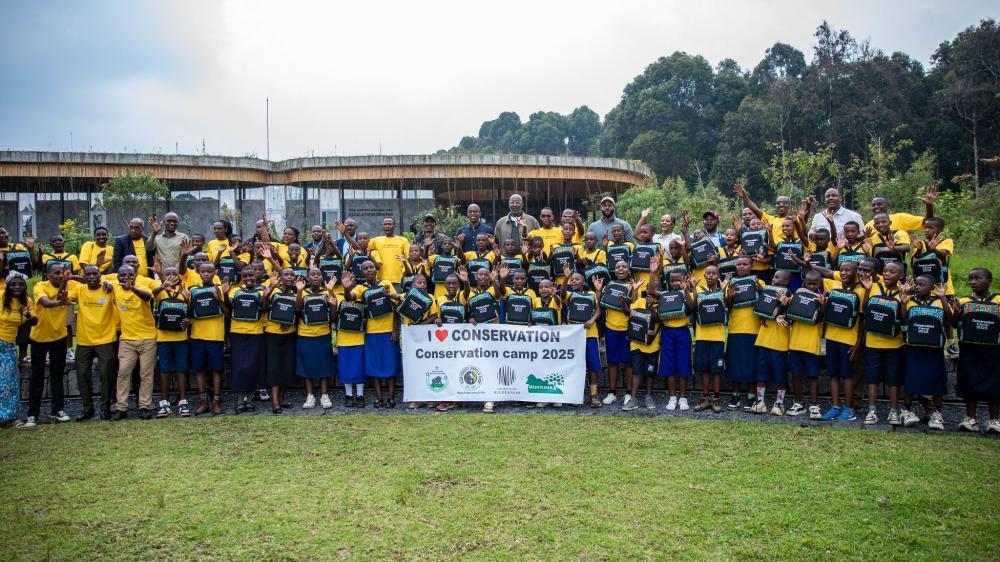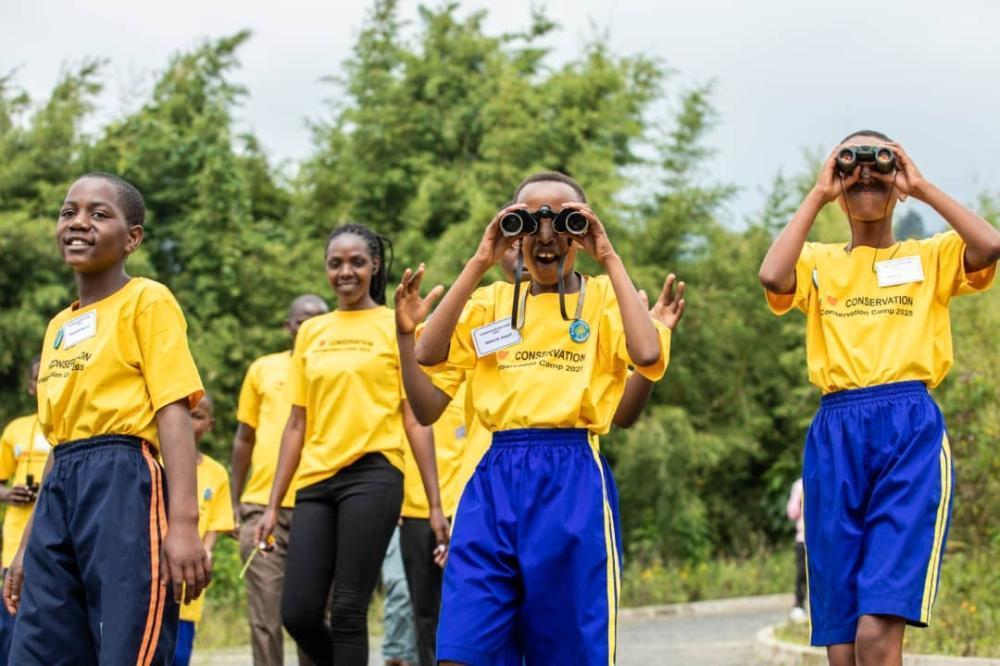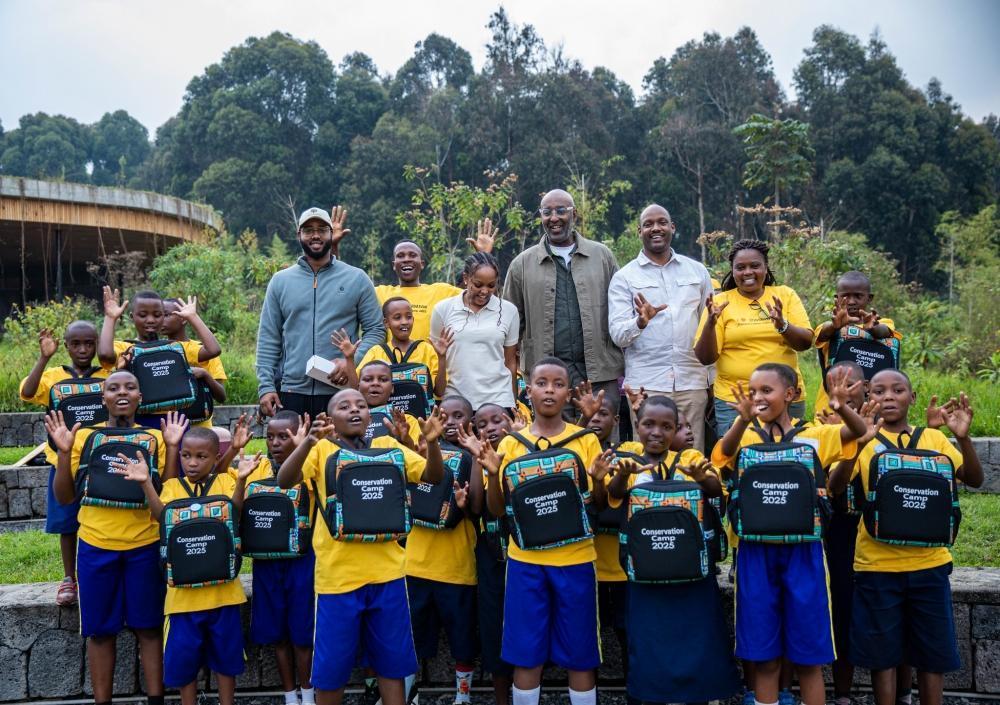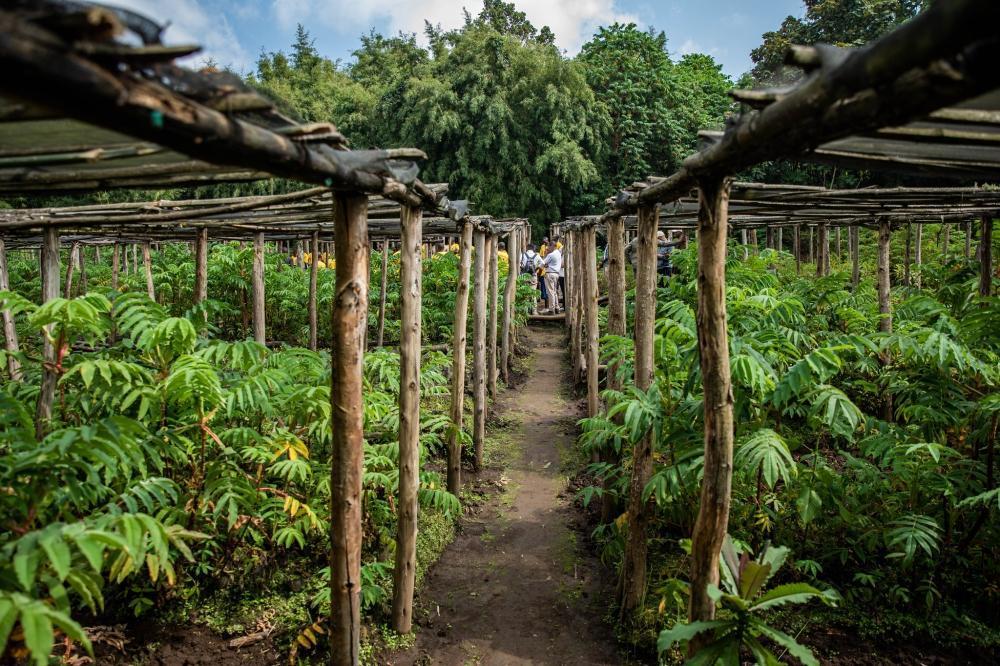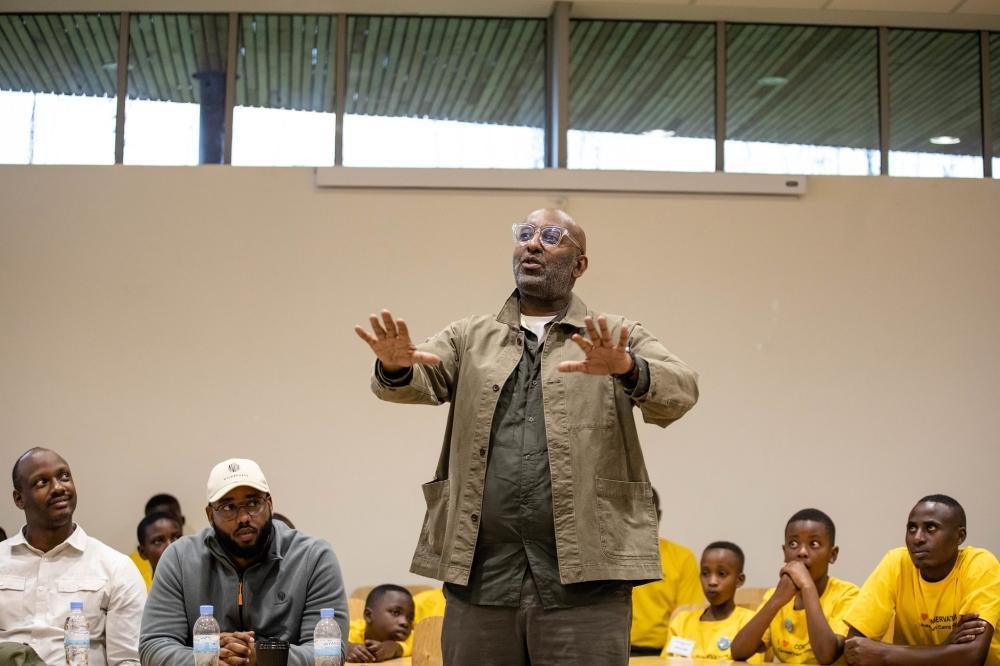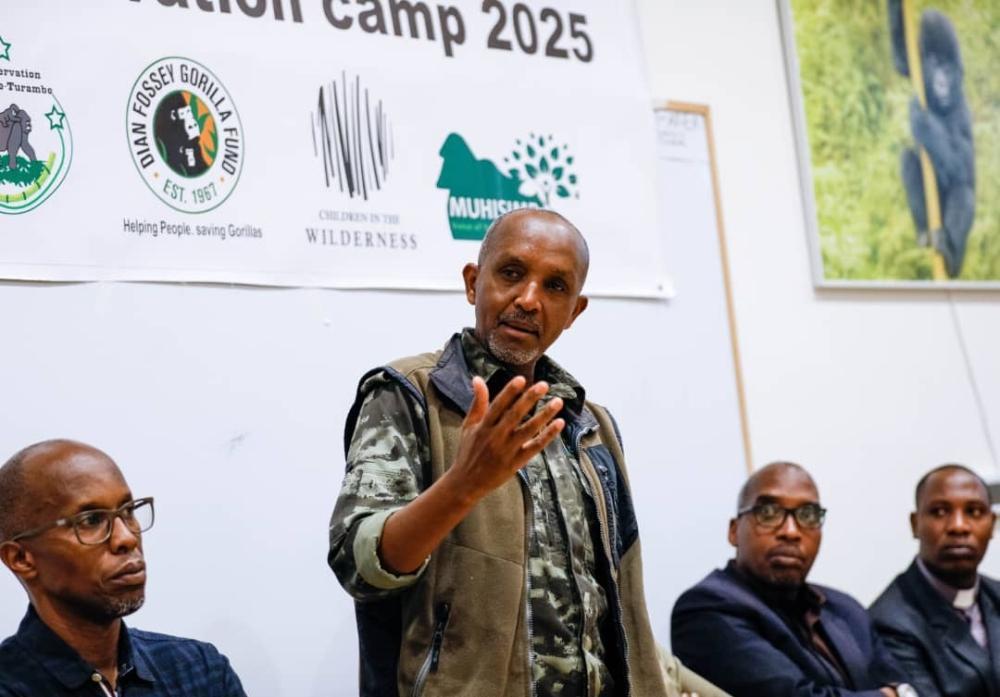Africa-Press – Rwanda. Four or more years ago, if you visited Wilderness Bisate, a luxurious rainforest-based lodge offering Africa’s most thrilling wild primate experience, located near Virunga National Park, you would hardly believe its stunning transformation.
The award-winning lodge now provides tranquillity, surrounded by indigenous trees that have been grown to cover what used to be open, dry-looking hills.
Over the past six years, the area has been transformed into a hub of breathtaking yet practical reforestation lessons, carried out under Wilderness’ visionary programme that targets restoring life to the ecosystem. Currently, over 120,000 trees have been planted. The results have been seen, a once-lost bird species now has nests tucked into the trees, while monkeys, African grey parrots, buffalos, gorillas, and more have returned.
Students practising binoculars at the nature walk
The spirit of conservation is being passed down to young minds, as 100 primary five pupils from 10 different schools in the Kinigi area, all members of various environmental clubs, on August 14, completed the Children in the Wilderness Conservation Camp 2025, the fifth edition since its inception in 2019.
The two-week annual camp was organised by Children in the Wilderness, in partnership with Conservation Heritage-Turambe, Muhisimbi Youth in Conservation and the Dian Fossey Gorilla Fund International that provides facilities for the students to learn theoretically.
https://x.com/NewTimesRwanda/status/1955934540909723817?t=jKYIYsDEZhT8pFumPYUt3A&s=19
“Its goal was to nurture future climate activists by teaching them how to live in harmony with nature, advocate for peaceful coexistence between humans and animals, protect wildlife, and prevent conflicts between park ecosystems and human activities,” noted Aline Umutoni, who is in charge of children in the Wilderness and Community Manager.
“First of all, we want to teach them about Rwanda’s scenic beauty, particularly the famous Virunga mountain landscape, how important our animals are, how many parks we have, and how a typical Rwandan, especially those living near the parks, can benefit from them. We believe in shaping young minds positively,” she said
Umutoni said that the cohort has particularly learned about wildlife and the concept of ecosystems, understanding how each being depends on the existence of others.
“This is to remind them that whether small or big, it matters on its space and contribution.”
On the closing day, children went to Wilderness Bisate for a field visit to the nursery, a segment that focuses on reforestation and the importance of protecting the environment. They later took a nature walk to observe how the same trees at the nursery have been grown into different places, and ultimately changed the area positively.
“They learnt how to nurture trees right from the seeds, and about the types of indigenous trees that can be grown such as the forest primrose (Umushunguru), laceleaf (Umwanya), forest dombeya (Umukore), forest lobelia (Intomvu), African mountain bamboo (Umugano), and African redwood (Umugeshi), to name but a few, and their importance,” she explained.
“We want them to love the trees while understanding the journey from nurturing them to creating beautiful environments in the area,” she said.
“Practically, we give each of them a tree of their choice to take home and grow. We follow up to check its progress and assess their commitment. Some participants from the previous cohort have successfully nurtured their trees, which shows how this awareness and taking one step at a time really matters,” she added.
Ben Mukunzi, a passionate environmental activist, and part of the previous cohort, took a tree home and successfully nurtured it into a larger tree. However, Mukunzi said it was not easy, as it required daily monitoring, including watering, protecting it from domestic animals, choosing a strategic location, and staying committed to its growth.
He encouraged fellow students not to neglect their trees, he named them “babies” and asked that they are not left to survive on their own, as they might not withstand the conditions naturally.
Manzi Kayihura, Executive Chairman of Wildness Rwanda, noted that two particular businesses are important; conservation and the community.
Wilderness Bisate nursery where indigenous trees are grown and protected
Manzi Kayihura, the Executive Chairman of Wildness Rwanda, poses among the awarded students who showed commitment in their learning.
“In sponsoring this, we’re educating children and raising awareness about the environment. Being in tourism is understanding that nature is the base of our experience,” he said.
Speaking on conservation sustainability, Kayihura said that Wilderness has provided fully funded six-year high school scholarships to over 200 students since 2019, with 29 having graduated so far.
“We’re looking to include more children in the scholarship programme. We’re combining education and conservation, and we believe that if we don’t pass this knowledge to children, we are failing. Sustainability is about preserving what we have, and the next generation is responsible for that. We strongly believe in empowering these young minds,” he said.
These students are also introduced to business-oriented lessons, where they visit some of the lodges to observe how they operate and understand the contributions of tourism. This allows them to connect what they learn in school with real-world experiences.
“We’re looking at the possibility of bringing them in as interns so they can experience what we do, appreciate it, and learn from it. It’s an important part of what we do,” he noted.
Prosper Uwingeri, Chief Park Warden of Volcanoes National Park, said that consistent conservation efforts have produced commendable results for the park, particularly in ending poaching, pulling on love and harmony with wildlife, and encouraging everyone to take responsibility for their surroundings.
He noted that initiatives like the Children in the Wilderness camps are providing valuable guidance for the park’s future preservation.
“It’s an extraordinary programme. We believe that the camp changes their mind and this gives us positive attitude about the future. They’re the champions,” he said.
For More News And Analysis About Rwanda Follow Africa-Press

